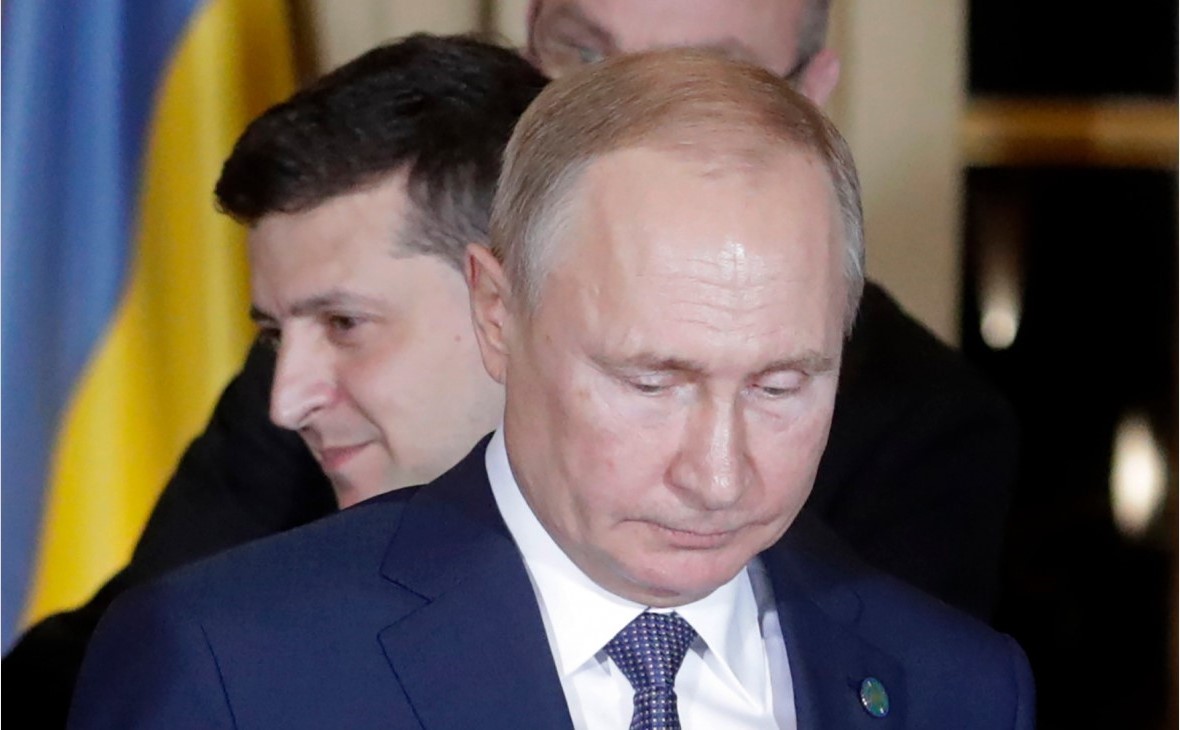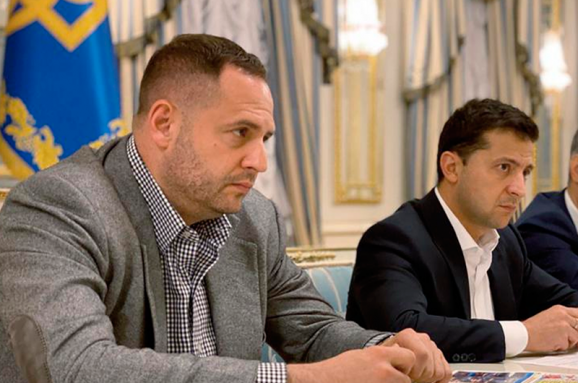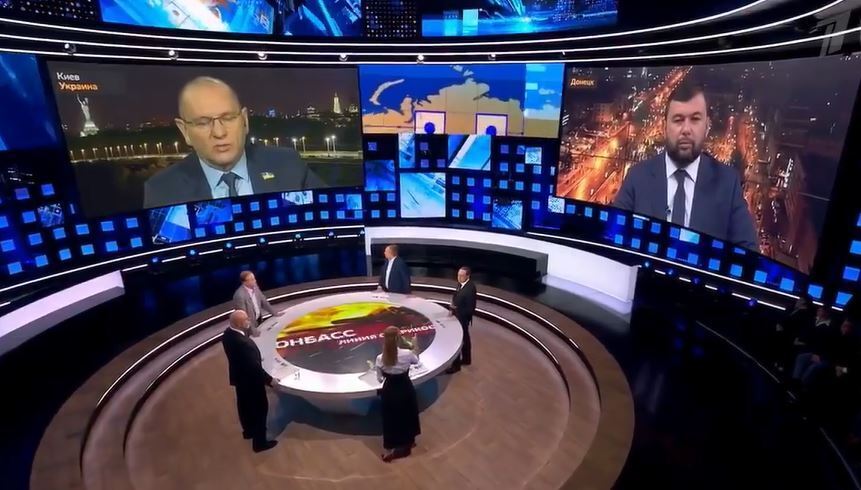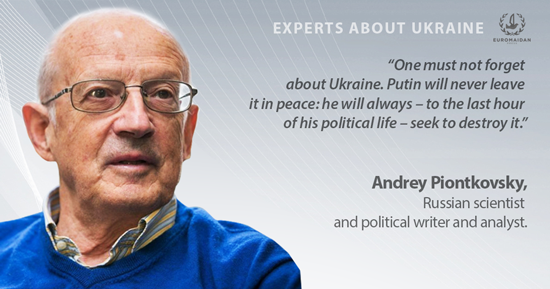The year 2019 ended with the exchanging of New Year’s greetings between the heads of the Ukrainian and Russian states. This was the first such greeting exchange since the start of the Russian aggression in Ukraine in 2014. This exchange–as well as all prior telephone conversations between Volodymyr Zelenskyy and Vladimir Putin–was initiated by the new Ukrainian president.
Zelenskyy’s formal justification to offer holiday congratulations to the man who commanded the partial occupation of Ukraine’s territory and who is not hiding his claims to everything that was left (at his year-end press conference, Putin again talked about the supposed “historic Russian-ness” of Black Sea-adjoining territories) was a need to talk after the recent prisoner exchange. This is the way Zelenskyy justifies his desire for conversations with Putin: he works to free Ukrainian hostages, while the “warlike minority” in Ukraine hinders his work. But it is obvious that this is only an excuse, because it was possible to discuss the exchange and new opportunities for the release of Ukrainian citizens a few days after the holidays, when the conversation would not have attracted as much attention and would have been perceived as a diplomatic communication and not as a call to a friend.
Zelenskyy really wanted to call Putin on New Year’s Eve for one simple reason: it was a call to a “real” president from a person who hardly even considers himself a real president. And it’s not at all because in his own perception his presidential status is diminished by the long career of a television comedian. Judging by Zelenskyy’s New Year’s address to the nation, in which he made another attempt to destroyy1 the values of the Ukrainian statehood, and by his own and his father’s recent interviews, which accurately convey the atmosphere in which the future Ukrainian president was brought up, he hardly considers Ukraine a real state. But can a fake state have a real president? Never!
But Putin is different. This is a man whose office is in a sacred place for every Soviet and post-Soviet person. He runs a state in which no one needs to prove anything and in which everyone speaks Russian, the only correct and understandable language, and not some rural misunderstanding, of which any intelligent resident of Kryvyi Rih [Zelenskyy’s hometown] is forced to break his tongue. Of course, Putin can order to execute you, but can also, of course, offer mercy instead. And if you don’t behave so impertinently and impudently as your presidential predecessor, if you smile and congratulate Putin on holidays, he will probably stop shooting, release prisoners and allow you, the little president of a little country, to rule safely in your lot.
This is simple logic of a little man who became president of a large country fighting for its very right to exist and to remain a sovereign Ukraine. But the problem and the tragedy of Ukraine is that such logic is not at all accidental. And Zelenskyy himself is not an accident. Precisely because the majority of the inhabitants of this large country perceive themselves as small people in a small under-state, Volodymyr Zelenskyy won the elections with such a deafening, besotting advantage, became the president of Ukraine and got the opportunity to talk on the phone with Vladimir Putin himself. Precisely because such Soviet mentality still exists in Ukraine, the president’s rating is unlikely to fall catastrophically after this holiday phone call to the Kremlin. All this disgrace is happening precisely because, for many residents of Ukraine, the word “patriot” has become the same kind of insult as the word “nationalist” was only recently.
But at the same time, the president’s disgraceful actions are not supported unanimously. Each such action widens the gap between the president and the patriotic part of society. And that means widening of the gap between the patriots of Ukraine and those who do not care of the country, those whose interests are really represented by the new government.
The Kremlin is well aware of this. Its operatives–those who did not succeed in creating an internal conflict in Ukraine after the Maidan of 2013-2014 and thus were forced to pass off their military occupation of Ukrainian lands as an internal conflict–are again trying to spark a real internal conflict between Ukrainians. They are hoping that after they provoke this real conflict, Putin’s “self-defense of Crimea,” his carving out of “people’s republics” in Donbas, and other crimes in Ukraine will be forgotten. Putin needs a civil war in Ukraine to provide himself with a justification for his past crimes and to establish control over Ukraine as a result of the new conflict.
And therefore, he receives Zelenskyy’s every call with such satisfaction.
Read More:
- Postcolonial syndrome, or Why do revolutions occur one after another in Ukraine?
- Zelenskyy’s prisoner swap: should Ukraine rescue its hostages at any cost?
- Ukraine swaps 127 prisoners including defendants of Maidan massacre to 76 Ukrainians held in occupied Donbas
- Case of Euromaidan massacre may never be solved as Berkut suspects freed for prisoner exchange with Russia
- Portnikov: Who in Ukraine is being bribed by Putin and Gazprom?
- Serhiy Zhadan: No one can protect his country by accepting conditions dictated by the invader
- Portnikov: Putin is preparing a new trap for Zelenskyy
- Portnikov: Russia “bombarding” the doubters before Normandy Four Summit
- Portnikov: This government is apathetic toward Ukraine
- Portnikov: Only Ukraine is at risk
- Portnikov: Why Berlin saves Putin’s Nord Stream 2 gas pipeline
- Ukraine’s Servants of the People coming out of the closet as ‘Servants of Russia,’ Portnikov says







